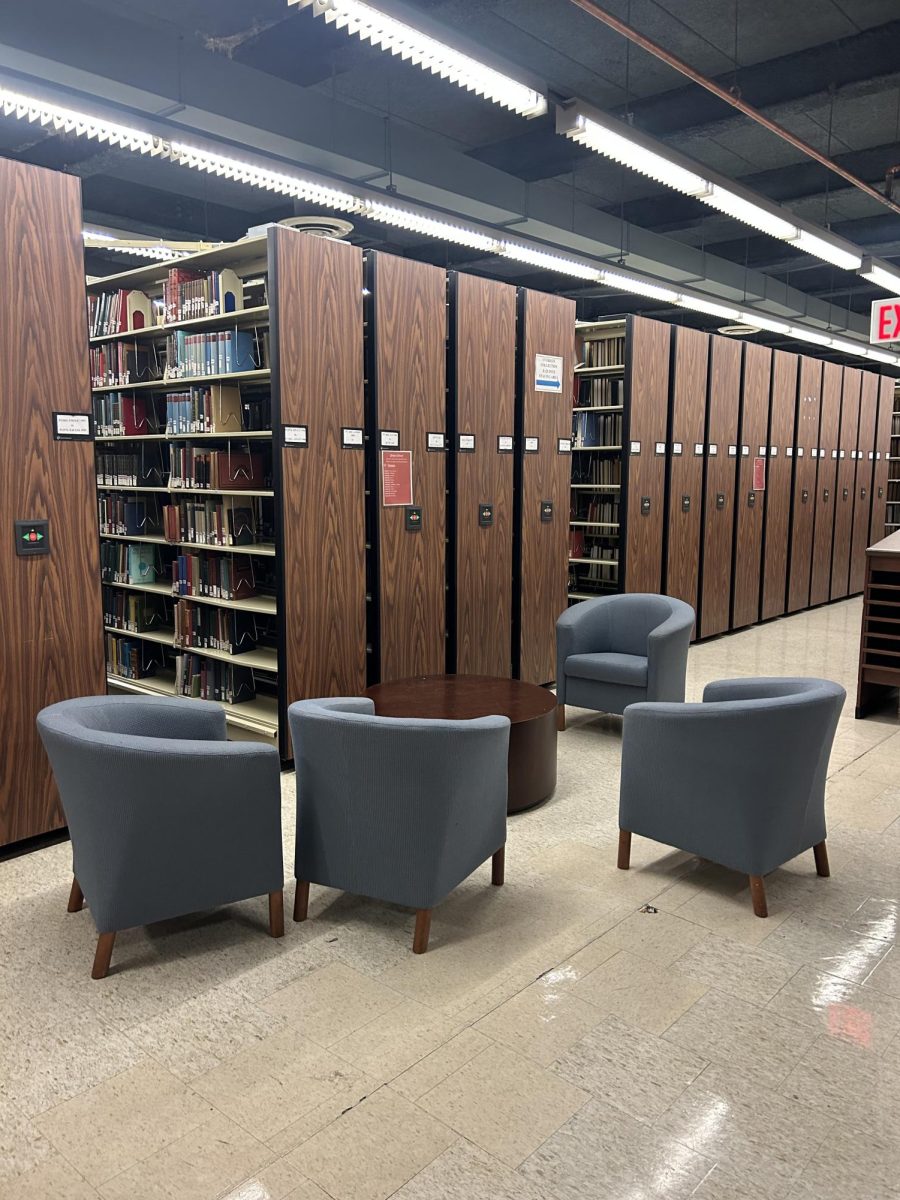QuinnX, an extension of Quinn Library which serves as a silent study space on the Lincoln Center campus, is, according to Linda LoSchiavo, director of university libraries, closing due to budget cuts and a lack of student interest. Marco Valera, vice president of administration, said that the QuinnX space will be reconfigured into music rooms and other student spaces.
“Closing QuinnX to the public this year had nothing to do with reconfiguration by stakeholders, nor is the library involved in any such conversations,” LoSchiavo said.
The extended study space, which is located across the hall from the primary Quinn library, was guarded by a Public Safety officer during its hours of operation due to its isolation and seclusion. LoSchiavo said that the budget cuts forced library services to cut the funding for security, causing them to close off the space for student use. She also noted that a lack of student interest was a large factor in the decision.
Students at Fordham Lincoln Center (FLC) have expressed their disappointment to this news.
Nancy Mameli, Fordham College at Lincoln Center (FCLC) ’26, said that she is “excited that we’re going to have music rooms” but said the reconfiguration “felt unnecessary.”
As an English major, Mameli said she feels that limited access to the additional library space is concerning to both literary and musical interest groups.
“Why does one specialty have to suffer on this campus for another to have what they need,” she said.
Ava Bauer, FCLC ’26, echoed a similar sentiment on the closing of QuinnX.
“It is a shame that this campus is just so small, and we can’t have these two spaces co-existing,” Bauer said. “It does make me concerned about the future of how the resources in QuinnX will be distributed and prioritized after it’s rebuilt.”
“This is the last piece of substantial real estate that can be redeveloped at the Lincoln Center campus at this point.” Marco Valera, vice president of administration
Valera said he has facilitated the project to adapt the study space in conjunction with several other departments, including that of the Provost and Senior Vice President for Academic Affairs Dennis Jacobs.
“There’s been a need to have music rooms on that campus for a long time, and to carve out a space for them,” Valera said.
Despite being in the early stages of the process, a donor, whom Valera did not name, has already come forward to finance the construction of these music rooms, making it the only part of the project that currently has funding from an outside source.
As the reconfiguration planning process — which Valera said will likely take up to six months — continues, the university will attempt to make the space marketable to donors. Valera added that plans to reconfigure the space had been initiated as early as 2019, but the process was delayed by the pandemic.
The email did not specify whether these spaces would likely replace QuinnX as it currently stands.
According to Valera, FLC’s ability to expand its campus is limited due to its residence in Manhattan. He explained that this limitation was a heavy influence on the decision to reimagine QuinnX’s purpose.
“There is no equivalent space,” Valera noted. “This is the last piece of substantial real estate that can be redeveloped at the Lincoln Center campus at this point.”
As Valera’s and Jacobs’ offices continue discussions and planning of the reevaluation of QuinnX, students at FLC are faced with the prospect of a new student space on campus in the spring semester.
Laura Auricchio, dean of FCLC, sent an email to students on Sept. 28 with a survey curated by the FCLC Dean’s Office and Fordham’s music program. The intent of the survey was to gauge student interest in music spaces. The survey featured questions gauging students’ interest in using a music room if the Lincoln Center campus were to offer them, or whether students would be interested in using recording equipment if it were available in a music room.
More information about the music rooms and reconfiguration of the QuinnX space will be communicated to the student body as the planning process continues.
The email did not specify whether these spaces would likely replace QuinnX as it currently stands.
“I took the survey myself, but at the same time literature is the most powerful tool in the world. To limit the accessibility to that in any way just doesn’t feel right,” Mameli said. “How are you giving me a microphone and turning one off at the same time?”
QuinnX opened in the fall 2019 semester with the purpose of providing a focused study space and additional, curated library selections. Its name is a portmanteau of “Quinn” and “annex,” a combination which can be attributed to LoSchiavo.
Currently, the space holds over 300,000 volumes, all published prior to the year 2000. The Maloney Law Library also keeps part of their collection in QuinnX.
Following QuinnX’s configuration as an interdepartmental space, there will be no silent study locations on campus for undergraduate student use. The fate of QuinnX’s existing resources also remains unclear.
LoSchiavo said that the resources in QuinnX are currently still accessible to students, as the desk in the main library is able to retrieve any material from the annex within 15 to 20 minutes of a student’s request.
More information about the music rooms and reconfiguration of the QuinnX space will be communicated to the student body as the planning process continues.


